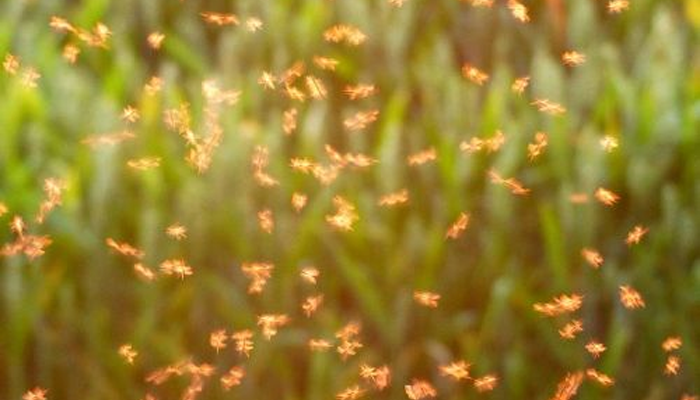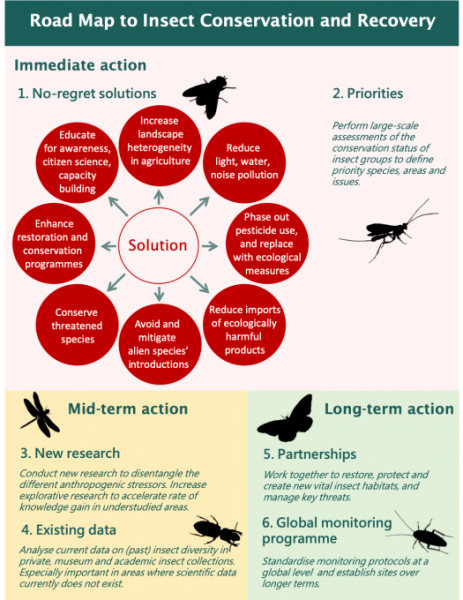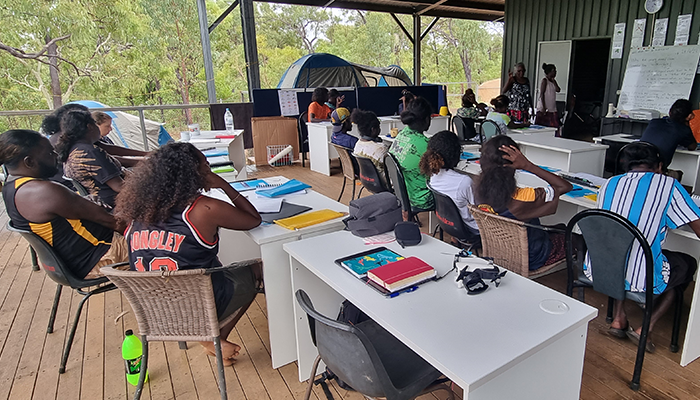It’s no secret that many insects are struggling worldwide, and in Australia the bushfire crisis is making it even harder. But according to a group of more than 70 scientists from 21 countries, we could fix the problem. They’ve created a road map to insect conservation and recovery, published in Nature Ecology & Evolution this week. Their strategies cover everything from urgent ‘no-regret’ solutions to long-term global comparisons.
The aim is to start insect recovery as quickly as possible, says project initiator Prof. Jeff Harvey from the Netherlands Institute of Ecology (NIOO-KNAW) and VU Amsterdam. “From all over the world, there is growing evidence that insect species are suffering from multiple human-induced stress factors: habitat loss and fragmentation, pollution, invasive species, climate change and overharvesting,” Prof. Harvey said.
“As scientists, we want to gather all available knowledge and put it to action together with land managers, policy makers and everyone else involved.”
Nowhere is this more important than in Australia. Macquarie University’s Prof. Marie Herberstein explains that, “As the Australian bushfire crisis is showing us, we need a coordinated global strategy to implement immediate- to long-term measures for insect recovery.
“In Australia, the bush fires are likely to have resulted in substantial overall losses of insect numbers and possibly losses of entire species.”
Predators to pollinators
The roadmap is based on achieving targets over different timescales. More than 70 experts from all continents joined the effort. Herberstein was among the researchers from Australian universities, along with Macquarie University’s Dr Lizzy Lowe.
Insect abundance, diversity and biomass are frequently under pressure. It affects all functional groups, from predators to pollinators. This is not a problem that can be considered in isolation – the effects will be wide-ranging. The authors stress that, “Insects are vitally important in a wide range of ecosystem services of which some are indispensible for food production and security, as in pest control.”

What can we do?
The steps to be taken are divided into immediate, mid- and long-term actions. First of all, there are a number of actions described as ‘no-regret solutions’. These can be taken immediately and won’t be affected by any new knowledge we uncover. They will benefit all insects, not just single species.
Second, we must urgently establish priorities about which species, areas and issues most need our attention.
In the medium term, we need to plan new experiments to establish which stress factors cause what effects, and gain knowledge in understudied areas. At the same time we need to dig through existing insect collections, like those held in museums. This can provide an essential base reference to fill in gaps in our diversity data of the past.
Long term actions could include forming public-private partnerships and sustainable financing initiatives to restore and create places habitat for the insects. Combined with a global monitoring program where people all use the exact same methods and sites, over longer timescales. In that way, we can compare the well-being of insects worldwide, and rule out possibly disruptive inconsistencies.
True recovery
The extensive group of scientific experts involved in the road map stresses that insect declines are a serious threat, one that society cannot postpone addressing any longer. Harvey says, “Most importantly, we hope that end-users and land managers now can use this road map in for instance farming, habitat management and urban development as a template for true insect recovery.
‘Essentially, we are thinking strategically, and this is a new approach. Now and down the road, all to reverse insect declines.”
Lowe stresses that taking action is necessary and urgent. “Insects are such important contributors to our ecosystems that we can’t afford to keep ignoring their conservation. We’ve created a road map, including solutions such as reducing pesticide use and pollution, that will help maintain healthy insect populations into the future.”

A roadmap for insect recovery



